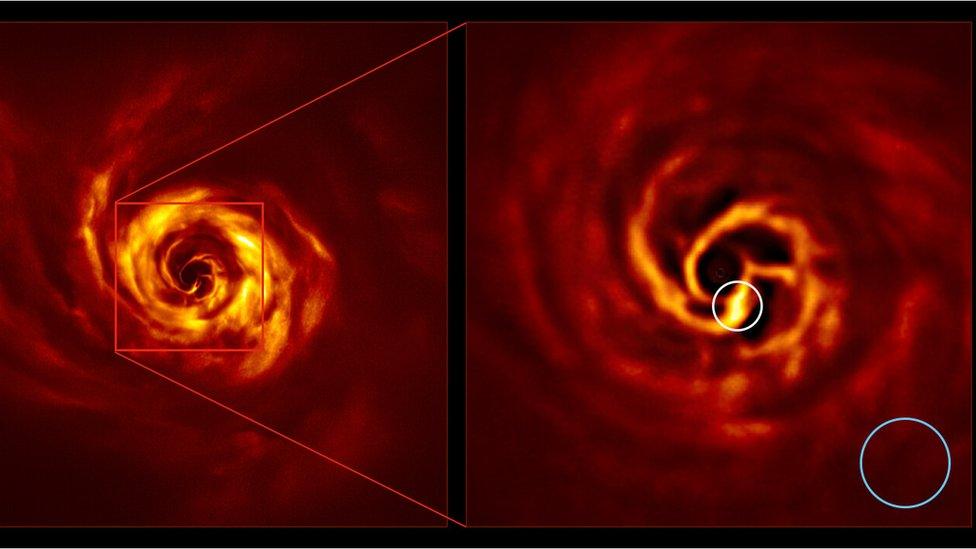Baby planet formation captured for the first time
- Published
- comments

European Southern Observatory's image highlights the 'twist' marking the baby planet
Astronomers think they may have found a new baby planet being 'born'.
It's exciting because it's the first time images of this have ever been captured.
Scientists were observing a young star called AB Aurigae, which is a whopping 520 light years from Earth, when they noticed a dense disc of dust and gas swirling around the star.
Deep in this disc of dust and gas, the scientists found a spiral structure with a "twist" near the centre, a sign of a new planet being formed.
Powerful telescopes, such as the VLT in Chile, help astronomers study the universe from Earth
The scientists were using the European Southern Observatory's Very Large Telescope (VLT) to capture the images. This is a very powerful telescope located in Chile that astronomers use to study the universe.
Dr Anthony Boccaletti, who led the study from the Observatoire de Paris, in France, said: "Thousands of exoplanets have been identified so far, but little is known about how they form. We need to observe very young systems to really capture the moment when planets form."
In the past it has been very difficult to capture images of these discs that are sharp and deep enough to find the 'twist' marking where a new planet is being born.
The European Southern Observatory is currently building its imaginatively named Extremely Large Telescope (ELT) on a mountain in Chile. They hope the ELT will allow planets to be studied in even greater detail.
If you cannot see the quiz, click here.
- Published6 May 2020
- Published12 March 2020
- Published20 November 2019
- Published20 June 2014
